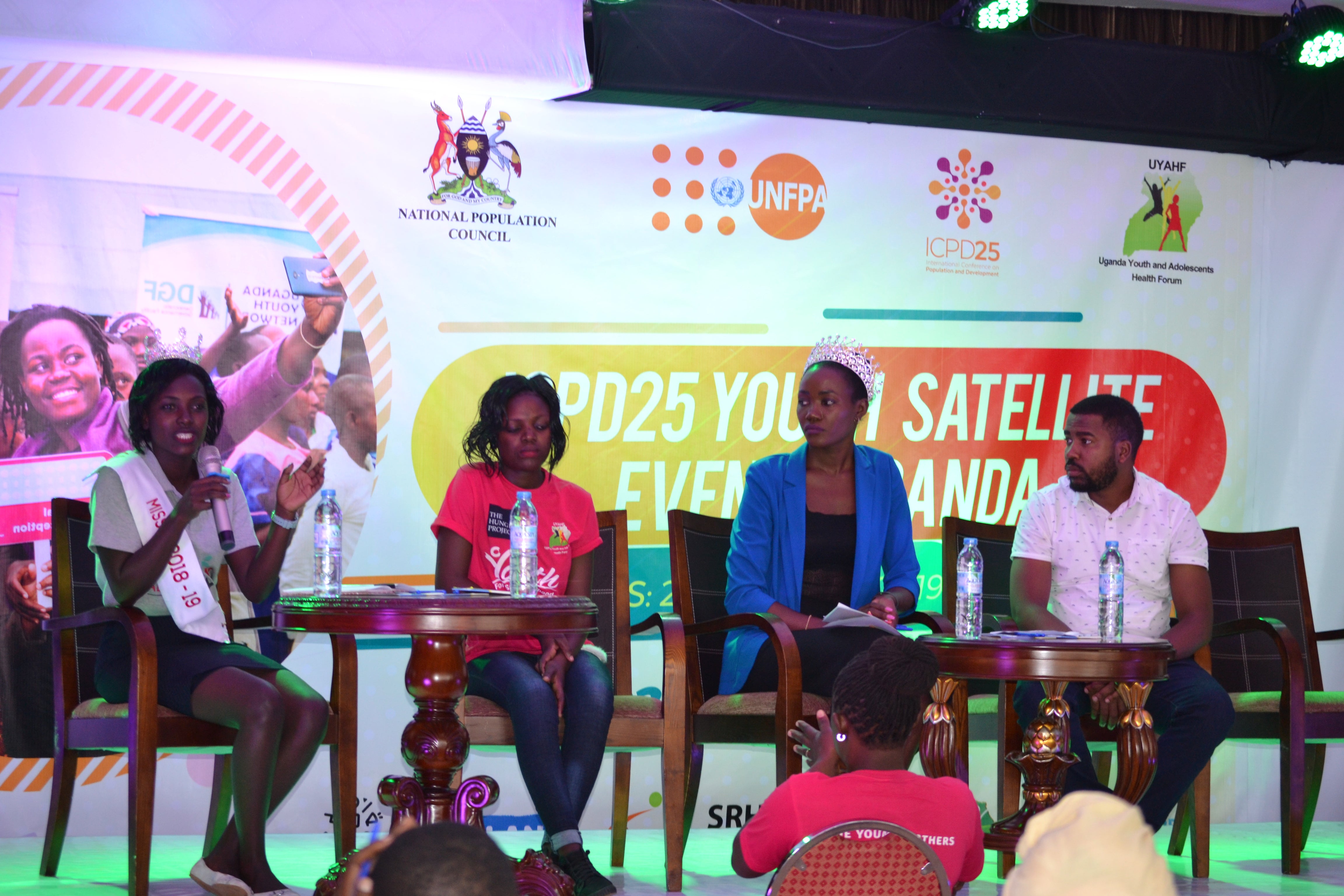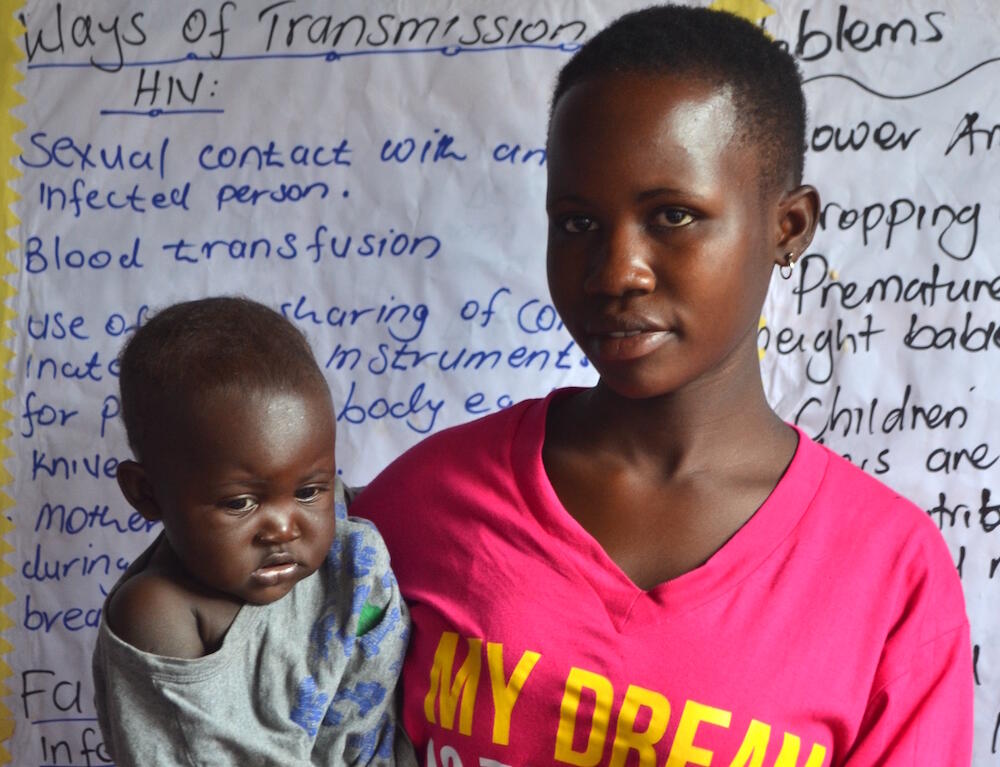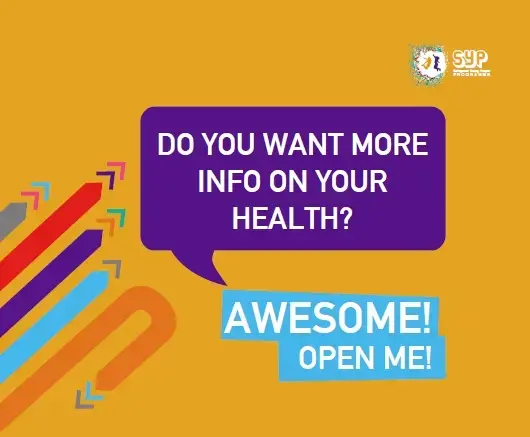KAMPALA, Uganda—Young people in Uganda are experiencing a pushback and backlash regarding their sexual and reproductive health and rights (SRHR), particularly in regards to sexuality education, contraception and gender equality.

reproductive health and rights to officials from the Ministry of
Health, UNFPA, and National Population Council.
© UNFPA Uganda/Hope Kirabo
This indicates the often-politicized nature of SRHR and young people’s health, which impedes progress and, in some cases, even threatens a regression.
This was stated by young people in a position paper handed to officials from the Ministry of Health, the National Population Council, UNFPA, and the Embassy of Denmark at an ICPD25 Youth Satellite event. The aim of the event was to share experiences on what the International Conference on Population and Development (ICPD) agenda means for them and how it has impacted their lives, and also how they can learn from each other to play a critical role in advancing the agenda.
Young people across Uganda, represented by 180 participants, passionately articulated their concerns regarding access to SRHR information and services at the satellite session.

Nabanoba Vivian, Rebecca Masaba, representing
people with disabilities, Miss Uganda 2019, Oliver
Nakakande and Humphrey Nabimanya, Founder
and Team Leader of Reach-A-Hand Uganda.
© UNFPA Uganda/Hope Kirabo
In a conversation between young people, government leaders, policy makers and legislators, Hon. Baguma Spellanza Muhenda, Member of Parliament and Chairperson of the Network for African Women Ministers and Parliamentarians (NAWMP), said that a day before the Youth Satellite event, Uganda's Parliament presented a motion demanding that the government implement key policies that would impact the lives of young people.
The policies include the National Sexuality Education Framework 2018, the Adolescent Health Policy Guidelines and Service Standards, and the School Health Policy. According to Parliament, all of these policies are in draft form or have been finalized but not yet operationalized.
“Uganda women Parliamentarians are also working on the Sexual Offences Bill as one of the measures to address teenage pregnancy,” said Hon. Muhenda.
According to the 2016 Uganda Health and Demographic Survey, Uganda’s teenage pregnancy rate stands at 25 per cent of girls aged 15 to 19 years.
“One key aspect of engaging young people is to co-create solutions for our future. We want to show you that we know what we are doing. All we want is for you to trust and empower us to advance sexual and reproductive health and rights for young people,” said Patrick Mwesigye, Team Leader at Uganda Youth and Adolescents Health Forum (UYAHF).
ICPD25 Summit a forum for leaders to make concrete commitments for youth
The upcoming ICPD25 Summit that will take place in Nairobi, Kenya from 12-14 November is the kind of forum where world leaders are expected to make concrete commitments that show that this time, they are serious about ensuring that young people everywhere are empowered to make informed choices about their bodies, their lives, and their futures.
At the ICPD Summit in Nairobi, young people will be front and centre.
“At the ICPD Summit in Nairobi, young people will be front and centre, sharing their hopes and perspectives and contributing their ideas, their leadership, their energy and creativity under the theme: My Body, My Life, My World!” said Mareledi Segtso, UNFPA Uganda Deputy Representative, a.i.
According to the Ugandan government, the recommendations by young people that were presented in their position paper will be considered during the national high-level symposium on ICPD25 that will take on October 2 in preparation for the ICPD25 Summit in Nairobi.
“I support what the young people have said. Can we provide accountability for what we have done since 1994 at the ICPD in Cairo?” asked Dr. Betty Kyadondo, the Director of Family Health at the National Population Council.
Supported by UNFPA, the National Population Council (NPC) under the Ministry of Finance is the coordinating government agency for the advancement of the ICPD agenda.
- Prossy Jonker Nakanjako



